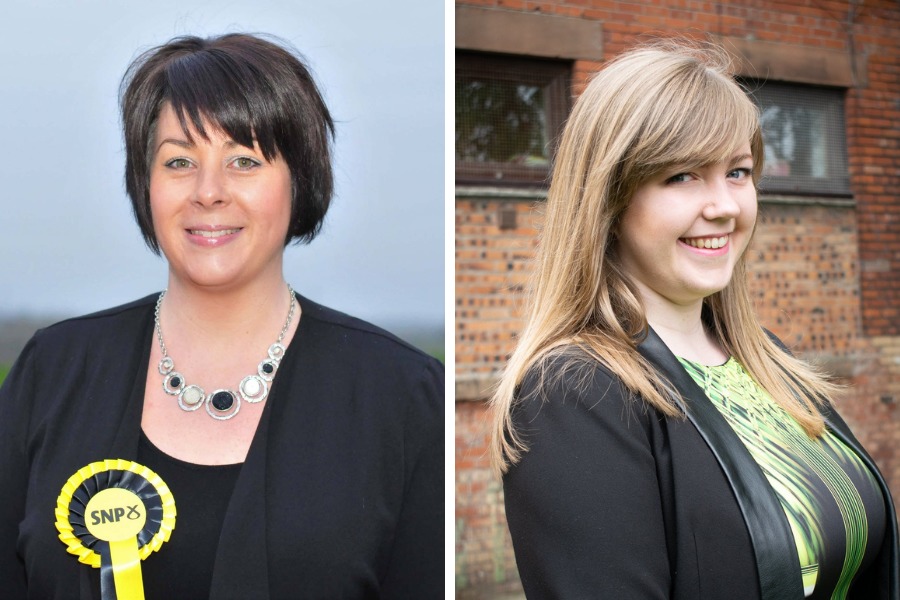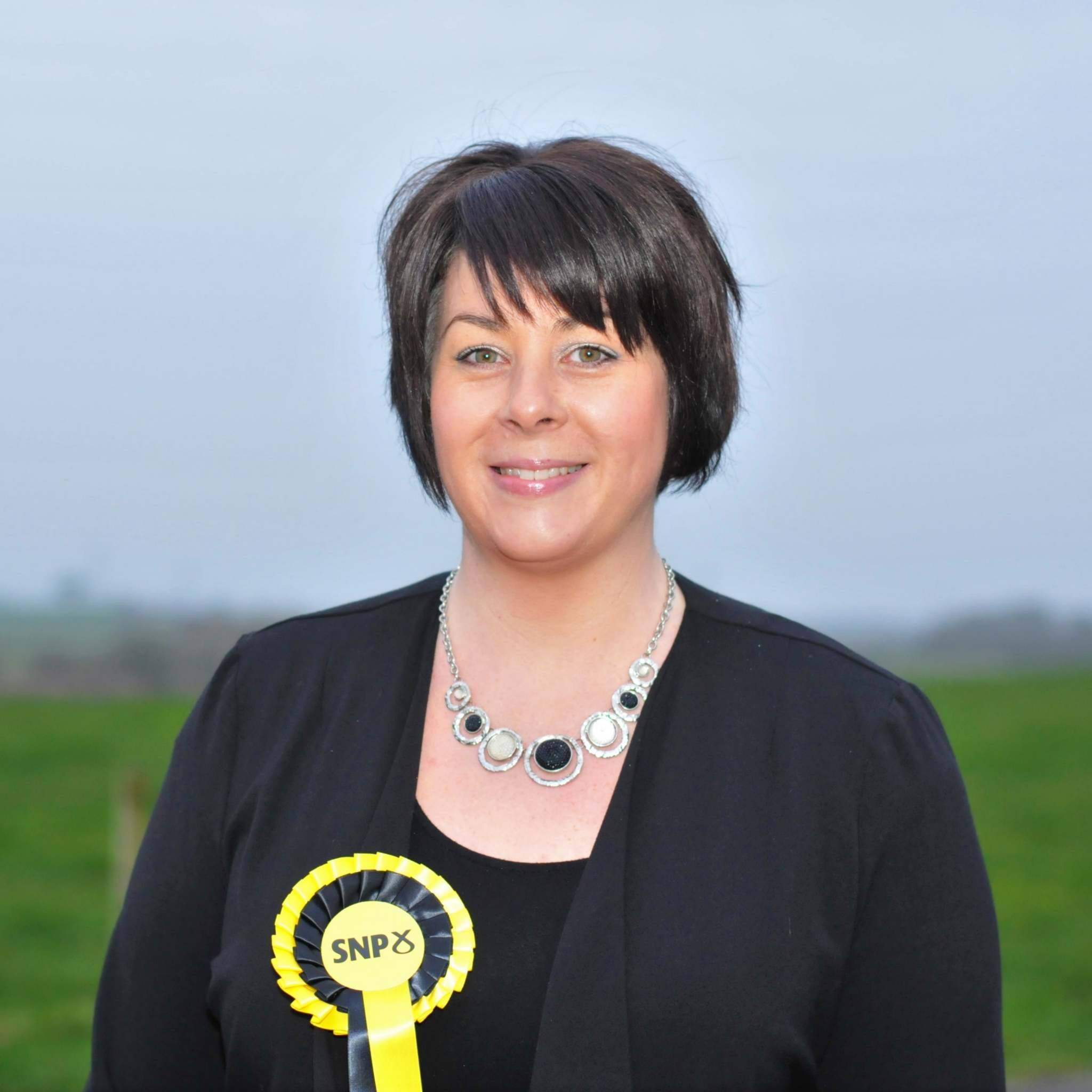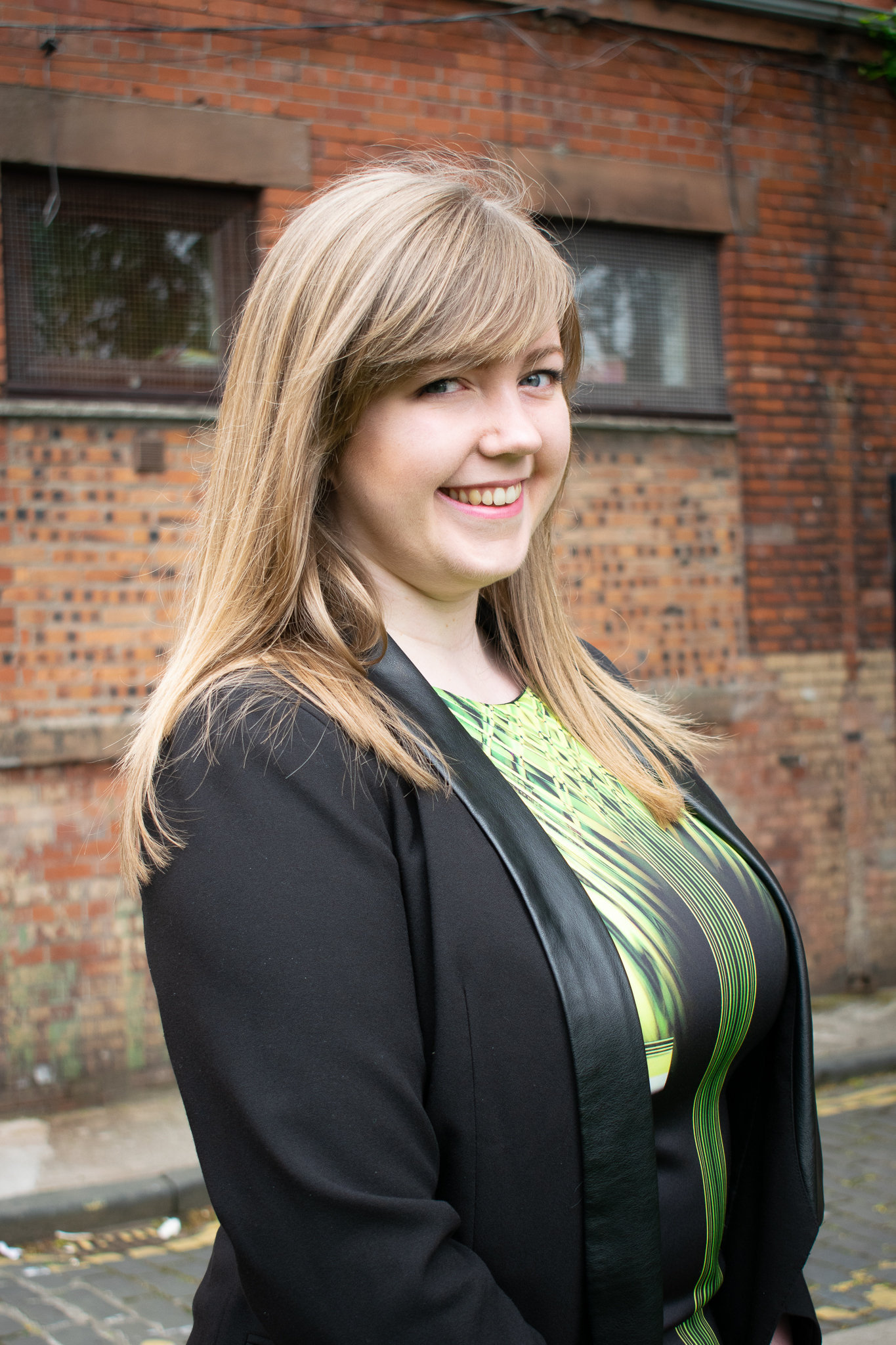
A YEAR on from the Holyrood election, two MSPs have spoken to the Sunday National about what it’s like becoming a parliamentarian during a period of unprecedented turmoil.
Elena Whitham – the SNP representative in Carrick, Cumnock and Doon Valley – and Gillian Mackay – the first-ever Green MSP in Central Scotland – entered Parliament for the first time as the country contended with Covid, Europe was plunged into war and Westminster was embroiled in scandal.
Their election to Holyrood has also coincided with a crucial phase in Scotland’s constitutional history, with their pro-Yes parties agreeing a landmark co-operation deal last year.
The pair are now speaking about facing discrimination and being shouted down in Holyrood, and have given their assessment of how close we are to indyref2.

Former Cosla spokesperson Whitham (above) was a regular in Parliament before May 6, 2021, but the Holyrood surrounds felt alien as an elected member.
“It’s very different when you walk in and you’re there representing your constituency,” she says. “You’re there with the weight of expectations of the folk of Scotland on your shoulders. And that’s an awesome responsibility. So, aye, it was a bit daunting.”
Mackay, a former parliamentary staffer, also knew the building well. She viewed her election as a chance to “put a stamp on things”. Although just 29 last May, she had been patient in her pursuit of public office, having been unsuccessful in council, Westminster and European Parliament elections. “I’ve completed the set,” she joked, reflecting on her historic Holyrood bid.
In typically understated fashion, Mackay says she had “quite a tough run up” to the election. In reality, the high point of her life so far followed a brutal period of bereavement – the death of her mother in December 2020 and her grandfather just six weeks before the election. She explains there was “a lot of pride”, tinged with “sadness”.
“I know that mum and grandpa would have loved to see me do that,” the Green says. “They would have been over the moon to see me walking into the building as an MSP.”
Lockdown ensured normal assimilation was not possible in Holyrood – with unforeseen consequences. Whitham describes starting during the pandemic as being “really difficult” as new members were more likely to become entrenched along party lines in the absence of day-to-day interaction with opponents.
“It’s allowed some opposition members to perhaps prevent themselves from forging those relationships cross-party,” she says. “Those are the relationships you forge, you know, waiting in line in the canteen or walking through the hallway. For the first period when everything was remote, and then hybrid, you were really losing those opportunities to realise that opposition members aren’t monsters.”
Mackay (below) agrees that the lack of personal interaction has encouraged tribalism, while explaining that conflict can also arise because “some people create a chamber persona”, where they view their contributions as “theatre”. She tells the Sunday National: “That is why they deliver speeches in the way they do. And if people take that at face value, that’s when we start getting into problems, because you can take things the wrong way. If people don’t know each other then they can’t take anything in good faith.”

The two MSPs have also had to contend with challenges known all too well by female politicians, as well as discrimination based on their respective disabilities. Mackay believes a lot of women in Holyrood struggle with “imposter syndrome”, suffering from a lack of self-confidence as a result of systematic prejudice. Such feelings have not persisted in her case, however.
“You realise that actually there are some MSPs in the chamber who’ve been there for ages who can’t give a speech any better than you can,” Mackay explains.
Whitham, a former Scottish Women’s Aid worker, reveals her frustration at male-dominated politics was a key motivation for running for office.
“I knew I wanted to be part of the decision-making process,” the MSP says.
She explains that many colleagues in the Commonwealth “look at Scotland in envy” due to its comparatively high rate of female participation in politics. Two women of colour were elected for the first time in 2021, while women with disabilities – including Whitham herself, who sometimes has to walk with a stick after sustaining a spinal injury 12 years ago – have also gained more representation.
“So we are making great progress,” the MSP says. However, she adds: “I think once you’re in Parliament, we still have barriers in front of us.”
Women at Holyrood often have to contend with an “adversarial” tone in debates and are spoken over by male colleagues. “You’re trying to operate in a system that’s geared up towards the patriarchy, and that can be exhausting,” Whitham says.
Mackay feels that being a young, disabled woman in Parliament has been an “interesting learning curve”. She has meniere’s disease, an inner-ear disorder than can lead to vertigo and hearing loss. The Green describes it as a “hidden disability” which colleagues often pay scant regard to.
“One of the things I’ve found surprising is just the level that people dismiss your impairment,” the MSP explains. When Mackay has raised concerns about the level of noise in Parliament, she’s been accused of “wanting to turn the chamber into a church”.
Mackay explains she is also “dismissed” due to her age, with colleagues using her spokesperson or parliamentary titles – “while all the men in the room are referred to by their names”.
The MSP says she laughs off the criticism, which inevitably floods in on social media too. She has come to view it almost as a badge of honour: “What they’re trying to do is to belittle you, and that’s because they feel threatened by what you’re doing.”
That does not mean Mackay takes discrimination lightly, however. Referencing the recent furore over comments made about Angela Rayner, she adds: “There’s a lot we need to do and it shouldn’t always be the women who need to do it.”
Modern-day politicians have to deal with a torrent of daily abuse online. The SNP MSP explains: “It’s really difficult not to read the things that are said about you, because once you’ve seen it, it’s in your consciousness. It lives in there and for some women it’s enough to make them not stand again.”
She says that was evidenced at the Holyrood election, when a swathe of female MSPs stood down, and warns the same process is happening at council level.
Both politicians are hopeful that the current crop of MSPs can help ensure future parliaments better represent the people of Scotland. “It comes back to that tribalism,” Mackay says, “If it’s not a pleasant place to be for disabled people or women with caring responsibilities, or anybody with caring responsibilities, then we’re going to end up going backwards. That’s not what Scotland looks like. And the chamber should look like what Scotland looks like.”
Last year’s election followed a period of renewed optimism for the Yes movement, after a series of encouraging polls in 2020. Twelve months on, the SNP-Green government says it is laying the groundwork for an independence referendum in 2023. Yet there is a palpable sense of frustration among activists, with commentators highly doubtful about ministers’ plans.
Mackay is “very confident” about holding indyref2 next year but says there’s been an understandable “waning in focus” from the public on independence and politics in general. For two years, people have been “waiting for doom” on the news, she explains, which is “not a cycle anyone wants”.
The MSP predicts that once a date for the referendum is officially set, “we will see that focus come back fully from the public”. She adds: “The fact that people now need a break from the news cycle isn’t a great surprise, but I really do think those definitive milestones will be something that brings a lot of people’s focus back in once they’ve had that breather.”
Whitham, who campaigned for independence during years living in Quebec, says Scotland is nearing a “tipping point” on independence as a result of the cost of living crisis.
In her short time in Parliament, it is this crisis which has come to dominate the concerns of her constituents. The politician is well aware of the struggles facing people in her area, having experienced poverty as a youngster: “If you’re in that situation, that dominates your life, it dominates every waking minute because you’re just continually thinking: ‘how am I going to survive till the next day?’”
The MSP warned there will be “tough decisions” ahead as Scotland grapples with offering more comprehensive social security measures while under the Westminster funding model.
“I think that’s only going to serve to highlight the fact that without all the levers of power as a normal, independent country, we’re always going to be beholden to decisions that are taken somewhere else,” she says. “I think that people are realising that the situation is only worsening at the moment under a Westminster system. I think that that’s going to help us to win our independence.”
Older and wiser a year on from their entry to the Scottish Parliament, the MSPs have some parting words of wisdom to offer to future Holyrood newcomers.
“Get stuck in,” Mackay says. “Don’t think just because someone has been elected longer than you or elected to other places that they know more than you do, or that they are more capable than you are.”
Whitham seconds that opinion, stressing the importance of co-operation. She says: “If you go into it with an open mind, open ears and an open heart, then I think that’s where we can make the best decisions that reflect the needs of the population.”
Finally, the SNP MSP adds a vital piece of advice regarding the Holyrood canteen: “And don’t believe the hype about the macaroni cheese … it’s a plate of stodge.”







